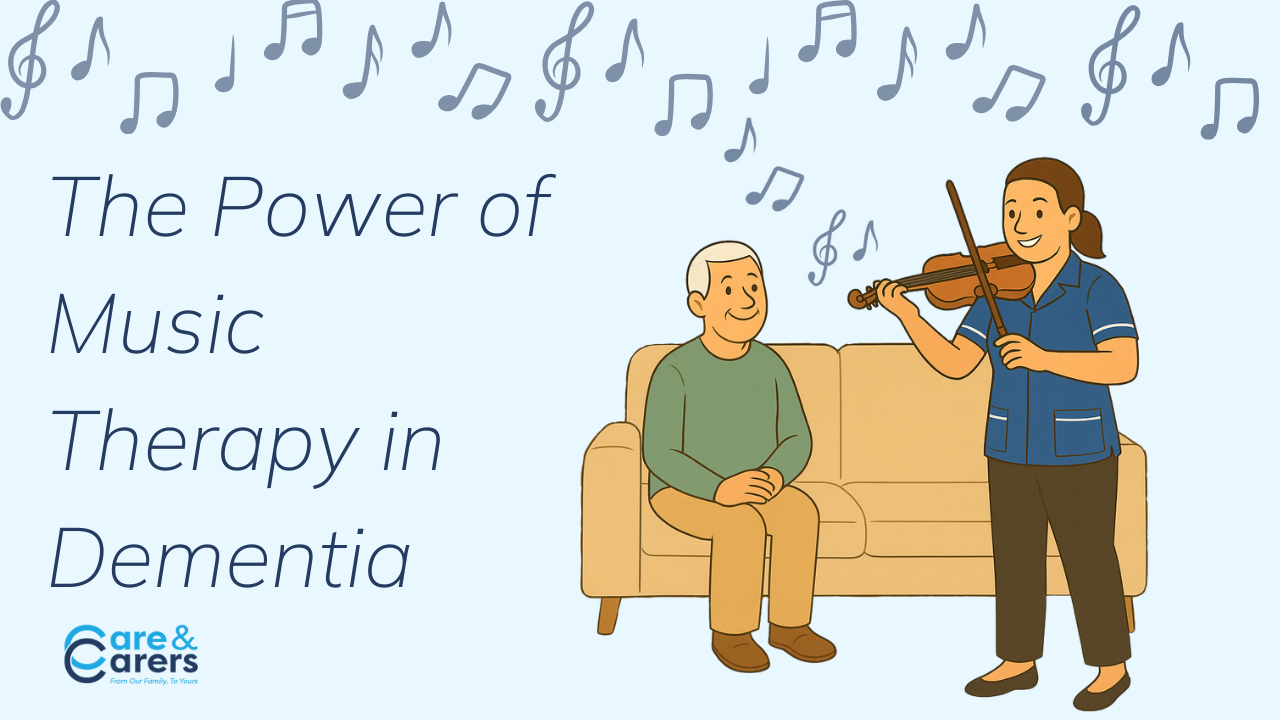The Power of Music Therapy in Dementia
We all love to listen to music; it has the power to completely change your mood or allow you to bask in a memory or emotion. Music has been around for centuries and is a great way to bring people together! Music Therapy is clinical use of music to accomplish various goals related to the specifically individual. Although it does not always have to be dementia focused. Music Therapy has been shown to help elevate mood and self-expression. Music therapy experiences could include playing musical instruments as well as listening to music. There are records showing Music Therapy has been around for decades and has been used in a variety of different settings.
How does it link to Dementia?
There have been studies that have proven music can access different parts of the brain that are not used for language. So, if someone is no longer able to communicate due to dementia, music can access other parts of the brain and emotions. If you’re not sure of what music to play, picking some music from a genre popular in the individual’s life may be a good place to start.
Music can be heavily related to memories or emotions of someone’s past. Therefore, an individual suffering with dementia may benefit from music therapy to awaken some of their past experiences. There can be both negative and positive reactions, so it is important to watch the person closely for any sign of reaction. You as the supporter of this therapy will have to make a judgement about whether to allow the person to experience the emotion or turn off the music. Sometimes if the emotion is sadness, the best response to this could be sitting closely with the person and allowing them to experience this emotion. It could provide some relief. While upbeat music can encourage laughter dancing and fun.
Some of the benefits experienced from music therapy are:
- Expressing thoughts, ideas and emotions
- Connect to others around them
- Reduce social isolation
- Promote physical movement in the form of dance
- Lowing blood pressure
- Reducing muscle tension










